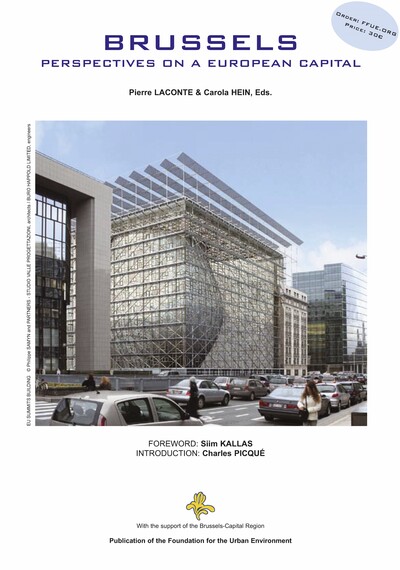- EAN13
- 9782960065008
- Éditeur
- ALITER
- Date de publication
- 9 avril 2007
- Collection
- FFUE
- Nombre de pages
- 128
- Dimensions
- 33,4 x 21,7 x 1 cm
- Poids
- 719 g
- Langue
- eng
Brussels: Perspectives On A European Capital
Laconte Pierre
ALITER
Prix public : 29,00 €
The European Quarter occupies some 3% of Brussels-Capital Region’s territory, which totals 160 sq. km. Its origin is the 1958 offer of the Belgian Government to its european partners: it concerned the residential area bordering the Cinquantenaire Park, a site which was eventually extended towards Leopold Park and the Luxemburg railway station. That whole quarter and particularly the Berlaymont building focused international attention on Brussels as Europe’s political capital but it also created an image of bureaucratic boredom, which ignored the rich cultural diversity of the nearby existing neighbourhoods. Fifty years have elapsed since the decision on the original location. Since 1992 the status of Brussels within the network of european institutions host cities has been confirmed. The time has come for a fresh assessment of the European Quarter and its future, as well as that of other areas that could accommodate further clusters of european activity. The European Quarter could be improved by giving a new quality to its public space, reopening lost vistas towards the Cinquantenaire Arcades and the Leopold Park, attracting a residential population wishing to live close to its work, improving pedestrian mobility within the area and improving the relation with the surrounding residential neighbourhoods. Indeed, the Brussels European Quarter is located within the urban fabric and not in remote outskirts, as is the case with NATO Headquarters. Other areas in the Region would be well suited as future clusters of European activities, mixed with other uses, in particular the areas around Delta and Josaphat stations, which already host European activities. This would give Brussels the opportunity to receive new agencies, as advocated by the European Commission’s Vice President Kallas in his foreword to the book of the Foundation for the Urban Environment “Brussels: Perspectives on a European capital” (Pierre Laconte and Carola Hein eds). Finally Brussels is not only a political capital of a European Economic Union also a multicultural pivot for a Europe of Cultures. The six-monthly shift of the European Council of Ministers’ presidency opens a wide field of cross-cultural activities centred on the titular country and enriching the Belgian and other European regions through an array of cultural events.



















